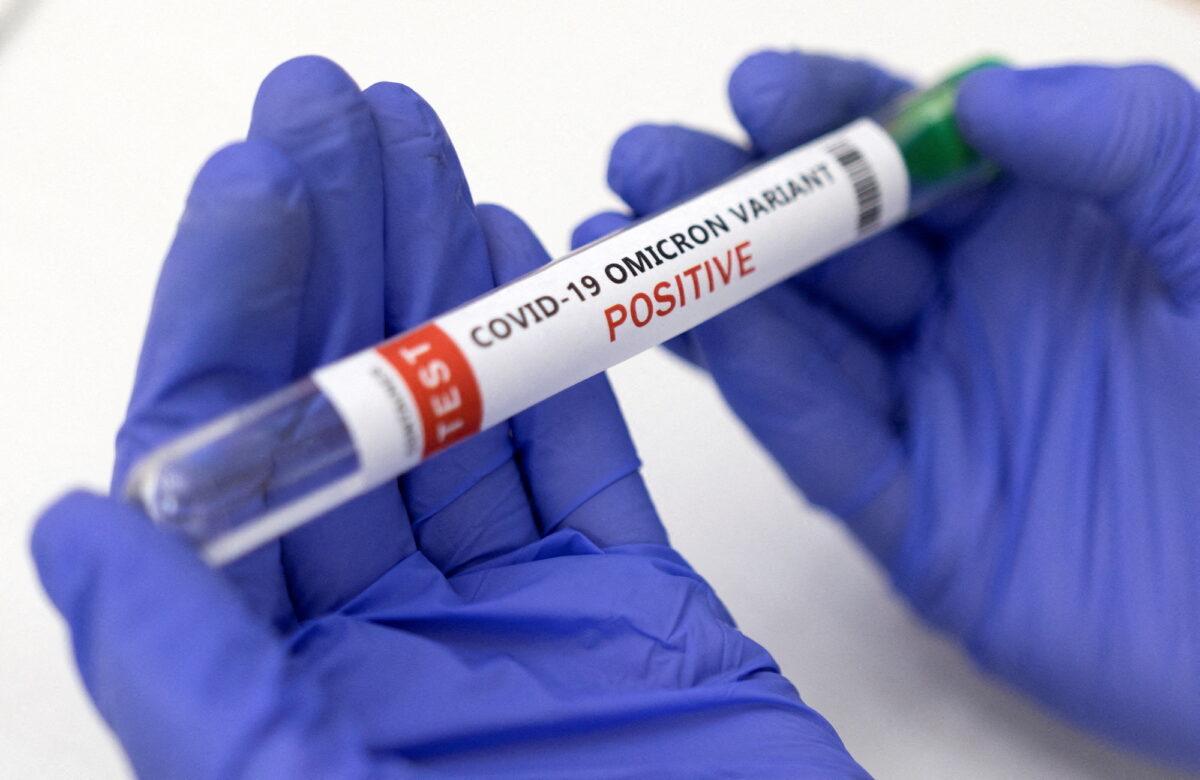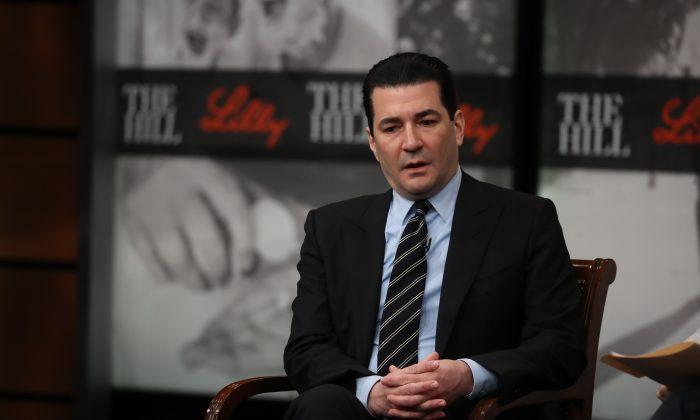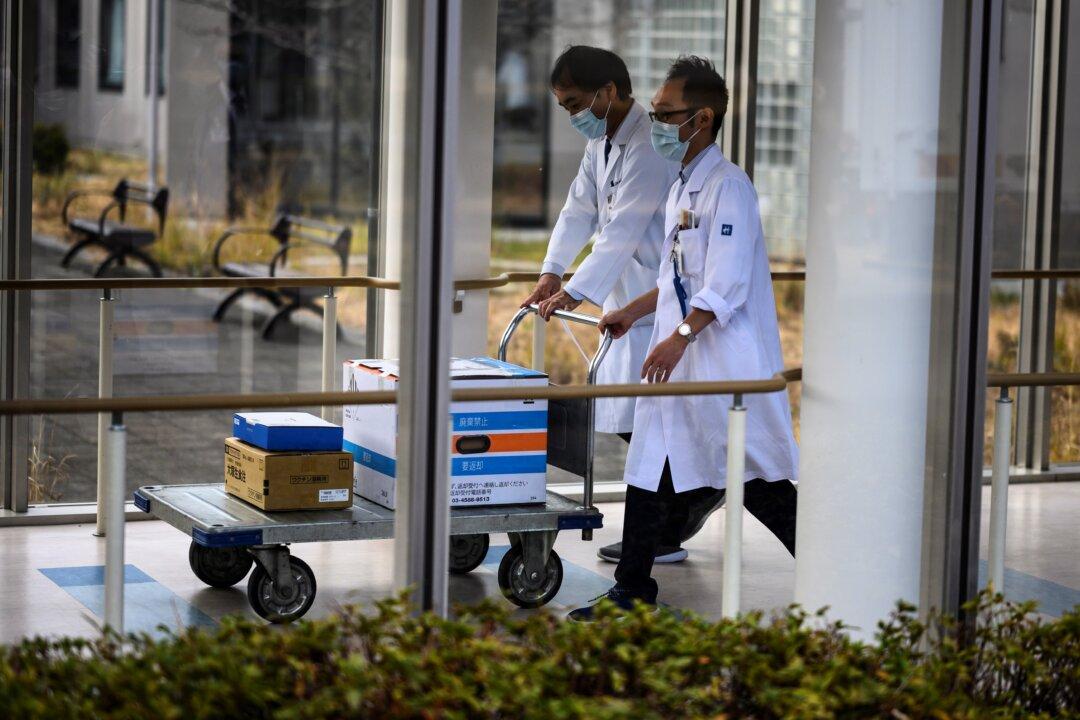Former Food and Drug Administration (FDA) Commissioner and current Pfizer board member Scott Gottlieb said he believes COVID-19 infections are going to continue to drop as spring approaches and that the United States should be “as aggressive” about relaxing restrictions as it was about imposing them.
Gottlieb made the remarks in a Jan. 28 interview on MSNBC’s “Morning Joe” program, with the segment kicking off with a discussion on the current state of the pandemic in the United States, where data suggests the current Omicron-driven wave is on the wane.
Parts of the United States are rapidly improving, Gottlieb said, while other regions are just hitting their epidemic peak. Deaths, which lag infections in the data, will continue to rise for a period of time even after cases start coming down, he added.
Unlike COVID-19 case counts, however, the number of daily deaths in the United States during the current wave has so far remained below the prior peak, with 4,439 fatalities recorded on Jan. 21, 2021, compared to 3,408 on Jan. 26, 2022.

Gottlieb, in comments about the emergence of a new subtype of Omicron—dubbed BA.2, said that while it appears to be more infectious, he doesn’t think it will be able to evade the immunity Americans have acquired over the course of the pandemic and so is unlikely to cause another wave of infections. The new subtype could, however, lead to a “longer tail” in the data, referring to a less abrupt drop in case counts compared to the initial Omicron-driven run-up.
Britain’s UK Health Security Agency said on Jan. 28 that BA.2 appears to have a “substantial” growth advantage over the BA.1 strain of Omicron, although officials said preliminary evaluations don’t suggest a difference in vaccine effectiveness against symptomatic disease between the two Omicron subtypes.
Even with the emergence of BA.2, Gottlieb said he believes COVID-19 infection levels are going to continue to come down into the spring and summer months and that the United States should consider removing some restrictions.
“People will resume their normal lives, hopefully, this spring and summer. We don’t see anything on the horizon that’s going to dramatically alter that trajectory,” Gottlieb said. He added that currently there’s “much more immunity in the population and a much broader composition of immunity,” reducing the likelihood of another wave.
Gottlieb then called for clear guidelines related to the removal of COVID-19 mitigation measures, arguing that the United States should be “as aggressive” in lifting restrictions as the situation improves as “we were about putting them in place.”
“I think we need to prescribe very clear goalposts for how we take these mitigation measures off. When do we lift the vaccine mandates? When do we stop using masks in schools?” he said.
Gottlieb added the United States should be “willing to relax some of these provisions that have created a lot of acrimony,” especially restrictions in schools such as mask requirements, and that “we want our kids to try to get back to some kind of semblance of normalcy.”
Gottlieb also argued that decisive moves to lift restrictions would restore confidence in public health guidance and make the reimposition of mitigation measures in response to a potential future wave less prone to backlash.





